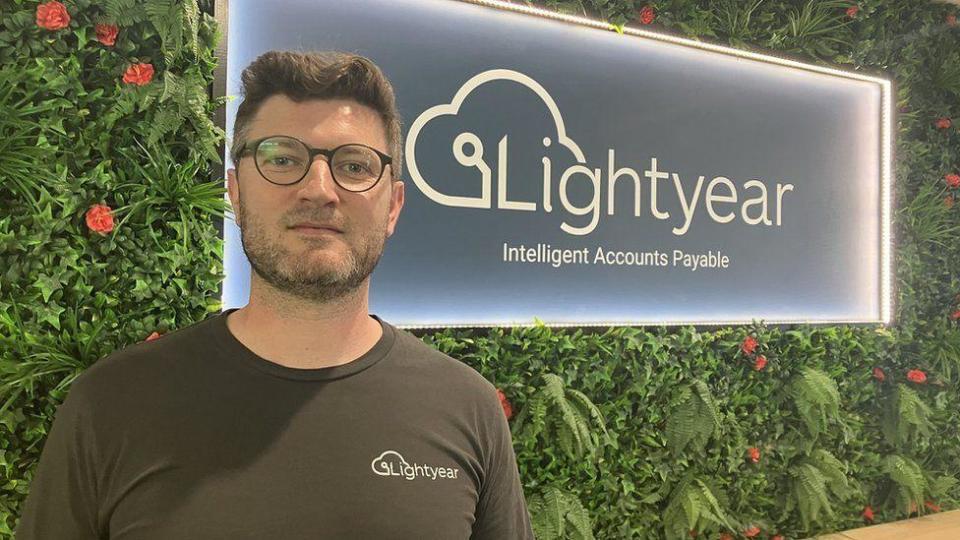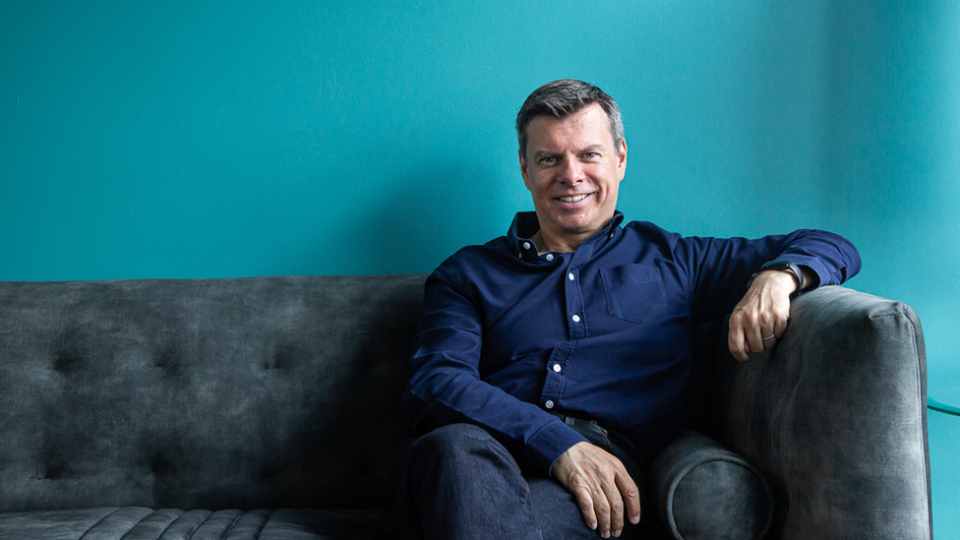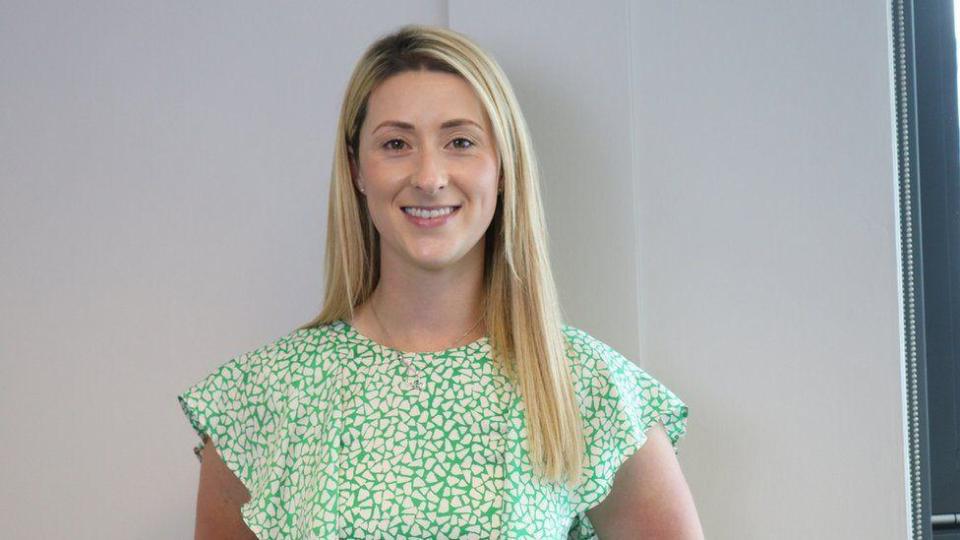Can Belfast build a £1bn start-up?
In the months following Northern Ireland's Good Friday Agreement in 1998, there was hope of prosperity as well as peace.
The then-chancellor Gordon Brown came to Belfast and delivered a speech on "a new partnership for prosperity".
He announced £10m to create a Northern Ireland Science Park with a mission to help new ideas become successful local businesses.
As the global economy has altered in the decades since, that mission can mean something bigger – could a new Northern Ireland technology start-up reach what is known as “unicorn” status by hitting a valuation of $1bn?
That is the ambition for many seeking to grow their businesses at that original Northern Ireland Science Park – now called Catalyst.
Celebrating its 25th anniversary, the organisation – based primarily at Belfast docks – has undergone a change of name, grown to become one of Northern Ireland’s biggest science parks and added a site in Londonderry.
It says it has about 2,700 people working across its sites every day and more than 140 firms.
But has its mission been fulfilled?
What makes a tech start-up?
From Chris Gregg’s perspective, it has – the business he founded at Catalyst with his brother has just been sold in a deal understood to be one of the most significant results for a Northern Ireland-based start-up.
The business, called Lightyear, has been bought by Access Group, the UK’s biggest software firm. The full terms of the deal have not been disclosed.

Chris runs the business from Catalyst’s Concourse building in Belfast docks, a site that shows how it attempts to foster innovation and growth.
Science parks, broadly, are a type of business park that aims to foster a cluster of science and knowledge-based industries - and, so, are ideal for fledgling technology start-ups.
The income Catalyst earns from its offices helps fund wraparound services for start-ups, including entrepreneurship courses and funding competitions, of which the best known - Invent - boasts a £55,000 prize fund.
Catalyst also provides a range of office sizes so businesses can stay with it as they scale up.
While the out-of-town nature of science parks like Catalyst can be a drawback, for Chris it provided the ideal base when he returned from living abroad, including a spell building and selling a software business in Australia.
"We founded the company in Catalyst and we have grown in Catalyst. It's been an amazing ecosystem for us to thrive in.
"Particularly as you're starting out and you need to build your brand. It's great to have like-minded people who are all there to help each other."
Belfast start-ups being bought up
Other major international companies have also bought businesses which were founded at Catalyst.
They include Nvidia, currently the world's hottest technology company, which bought the cybersecurity firm Titan IC.
But is it a weakness that successful Catalyst-founded firms – like Lightyear - tend to get acquired rather than remaining in long-term local ownership?
Chris Gregg said that, despite the sale, his firm will continue to grow at Catalyst as part of the Access Group.
"They want to double-down investment. They want us to go further, faster. They can open us to global markets," he said.
Although, he adds that it "would be great if we had some bigger success stories - homegrown, hero stories to get behind".

While a $1bn valuation remains a dream for many firms at Catalyst, Steve Orr, the organisation’s chief executive, said there are other aspects to consider.
"What matters more to us is to help create many science or technology or innovation-based businesses which can prove they've got a product that is better than anything else that exists.
"It's fine if somebody wants to get to 100 or 200 people and then sell, because what then happens is they might go again.
"It means you have people at the top of that organisation who have money to invest and help the next generation.
"That helps to create an awful lot more resilience rather than just having a dependence on one $1bn company."
The challenges for start-ups
Some of the issues Catalyst faces, as a science park, are common to any organisation which has office property as part of its business model.
The persistence of working from home since the pandemic has made demand for office space uncertain and there are now more landlords in Belfast offering flexible terms for start-up businesses.
Steve Orr said there are still around 2,000 people coming to work on Catalyst properties every day, which he describes as “really high when you look at the post-Covid world of work”.
Another major challenge for Northern Ireland start-ups more generally is getting access to the money needed to fuel growth.
In 2023, there was an estimated £17bn of venture capital investment in the UK, the vast majority of that in London, Cambridge and Oxford.
Catalyst estimates that investment in Northern Ireland was £143m across 72 deals. That was a record annual amount but shows there is still more to do to attract investors.

Despite these challenges, in one of Catalyst’s smaller offices, TeamFeePay is in the middle of a growth spurt.
It's a software provider that makes a product to help grassroots football clubs with their admin.
It launched commercially in 2021 and the business currently has 37 employees but is aiming to get to about 100 by the end of next year as it grows in international markets.
The firm's chief operating officer Victoria Millar comes from a corporate background in the insurance industry.
From her perspective, the value of Catalyst is having somewhere in Belfast that acts as a focus for high-potential start-up companies and entrepreneurs.
"We just feel it. We feel the energy. You pop downstairs for your lunch and you're bumping into people who are living the same thing.
"I don't think you get that in other office places I have worked in."


